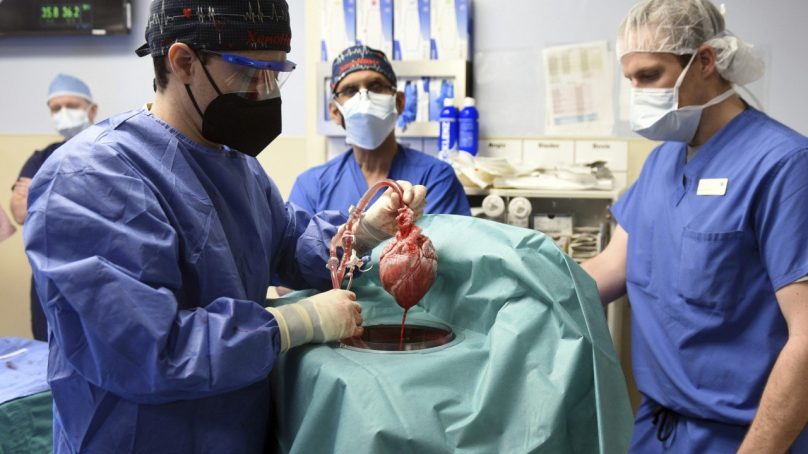
In a medical first, US surgeons transplanted a pig heart into a human patient, and say he is doing well three days after the extremely experimental operation.
A 57-year-old man with a life-threatening heart condition received a new heart from a genetically altered pig. While it’s too soon to tell if the surgery will work, doctors are optimistic as it is the first-of-its-kind in a decades-long quest to one day use animal organs to save human life.
The operation took place in Baltimore at the University of Maryland Medical Center on Friday and took a total of eight hours to complete.
Doctors at the Maryland hospital say the transplant showed that a heart from a genetically modified animal can function in the human body without immediate rejection.
The patient, David Bennett, 57, knew there was no guarantee the experiment would work but he was dying, ineligible for a human heart transplant and had no other option, his son said.
“It was either die or do this transplant. I want to live. I know it’s a shot in the dark, but it’s my last choice,” Bennett said a day before the surgery, according to a statement provided by the University of Maryland School of Medicine.
Demand for organs is higher than ever, and there’s a huge shortage of organs available.
Last year, there were over 3,800 heart transplants in the US, a record number, according to the United Network for Organ Sharing, which oversees the nation’s transplant system. A total of 41,354 Americans received a transplanted organ last year, over half of which were kidneys.
“If this works, there will be an endless supply of these organs for patients who are suffering,” said Dr Muhammad Mohiuddin, scientific director of the university’s animal-to-human transplant program.
Prior attempts at similar transplants have failed, largely because patients” bodies are quick to reject the animal organ.
This time, the Maryland surgeons used a heart from a pig that had been genetically altered. They removed a sugar in its cells that’s responsible for that hyper-fast organ rejection.
The Food and Drug Administration, which oversees such transplants, allowed the surgery under what’s called a “compassionate use” emergency authorization, available when a patient with a life-threatening condition has no other options.
- An AP report











